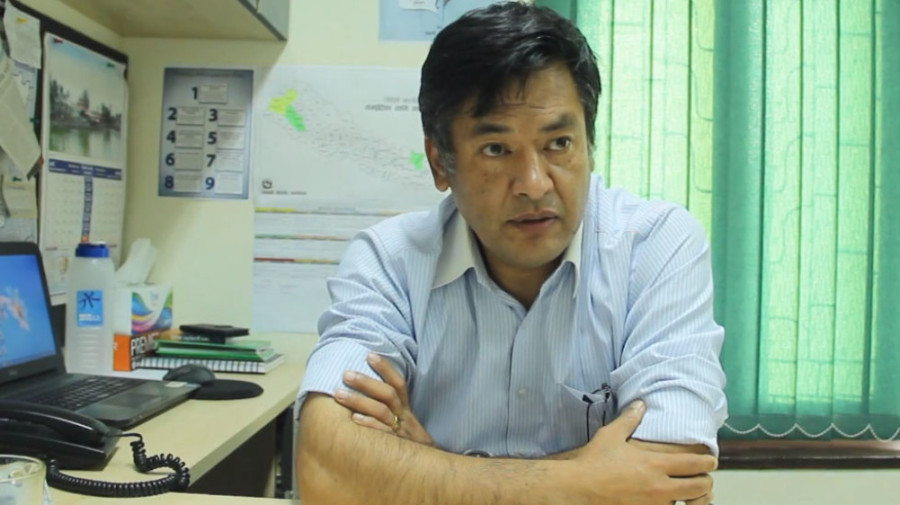National
NEA drags its feet on dues recovery
Despite regulator’s green light and minister’s order, the utility chief Hitendra Dev Shakya has taken no action against industrialists who owe billions of rupees in power bills.
Purushottam Poudel
Despite being at the helm of the Nepal Electricity Authority (NEA) for nearly three months, Executive Director Hitendra Dev Shakya has yet to take action against industrialists who have defaulted on electricity dues for the use of dedicated and trunk lines.
Shakya was appointed NEA chief on March 24 after the government dismissed then executive director Kulman Ghising. That very day, Ghising had sought the Electricity Regulatory Commission’s permission to disconnect power supply to factories and firms that had continued to enjoy electricity despite failing to pay billions of rupees in past dues.
The commission formally instructed the NEA on April 10 to initiate legal action against the defaulters, but as of mid-June, no such action has been taken, according to an official at the state-owned power utility.
While administering the oath of office to the newly appointed chief of NEA, Shakya, on March 25, Energy, Water Resources, and Irrigation Minister Deepak Khadka had directed Shakya to recover outstanding dues from industrialists.
Soon after taking the oath of office, Shakya, during a press conference, said he planned to resolve the long-standing dispute over unpaid dues.
“A quasi-judicial body has already made recommendations on the outstanding payments,” Shakya said at a press conference. “Only procedural matters remain. This is not a dispute to be resolved politically. It requires a technical solution.”
On April 11, the day after the commission paved the way for legal action, NEA’s board of directors amended the Electricity Distribution Regulations 2018, allowing industrialists to apply for re-evaluation by depositing just five percent of their outstanding dues as a security deposit. This was a sharp reduction from the statutory 25 percent.
A four-member Review Commission was formed for re-evaluation of outstanding dues with a mid-June deadline for the submission of applications for re-evaluation.
NEA spokesperson Rajbhai Shilpakar said 46 industrialists submitted re-evaluation applications within the deadline. He added that the authority is now waiting for the Review Commission’s decision.
However, Durga Nanda Bariyait, a member of the commission, said no meetings have been held so far.
“Only after the meeting will we know what kind of decision can be made on the applications,” Bariyait said.
Meanwhile, the spokesperson of the Electricity Regulatory Commission Mon Devi Shrestha told the Post that although they had been informally told that some industrialists had made partial payments of their outstanding dues in this period, no written confirmation of the payments has been provided to the commission.
“The NEA gave us an informal notice, but no written statement on the payments,” Shrestha said.
Earlier, when then NEA chief Ghising pushed for dues recovery, the government prevented the authority from further action, and instead formed a three-members committee to investigate the billing dispute over dedicated feeders and trunk lines.
The committee announced by Energy Minister Khadka was headed by former member of the National Planning Commission Arvinda Kumar Mishra, with former NEA official Shree Ram Pandey and chartered accountant Sujan Kaphle as members.
The committee, formed without the NEA board’s approval, had been assigned the responsibility of studying Time of Day (TOD) meters. However, its legitimacy was questioned and the Supreme Court subsequently annulled the committee.
On January 9, 2023, the then government led by CPN (Maosist Centre) chair Pushpa Kamal Dahal had formed a commission under Girish Chandra Lal, a former Supreme Court justice, to recommend ways to resolve the tariff dispute over the use of dedicated and trunk lines between July 2015 and June 2020. In this period, the government had made special arrangements to provide uninterrupted power to industrial firms even as ordinary consumers endured several hours of daily power cuts.
The Lal commission submitted its report to the Dahal government on May 6 last year. But the new government released the report only on November 11.
The commission recommended that tariffs for using the exclusive arrangement should be determined based on the prescribed standards for days and hours of electricity supply.
According to the authority, industrialists owe around Rs8.25 billion—Rs6.65 billion in principal dues, plus a 25 percent penalty. The initial estimate of arrears for firms using dedicated feeders and trunk lines was almost Rs22 billion. However, the amount was reduced following adjustments based on the recommendations of the Lal commission.




 9.89°C Kathmandu
9.89°C Kathmandu














